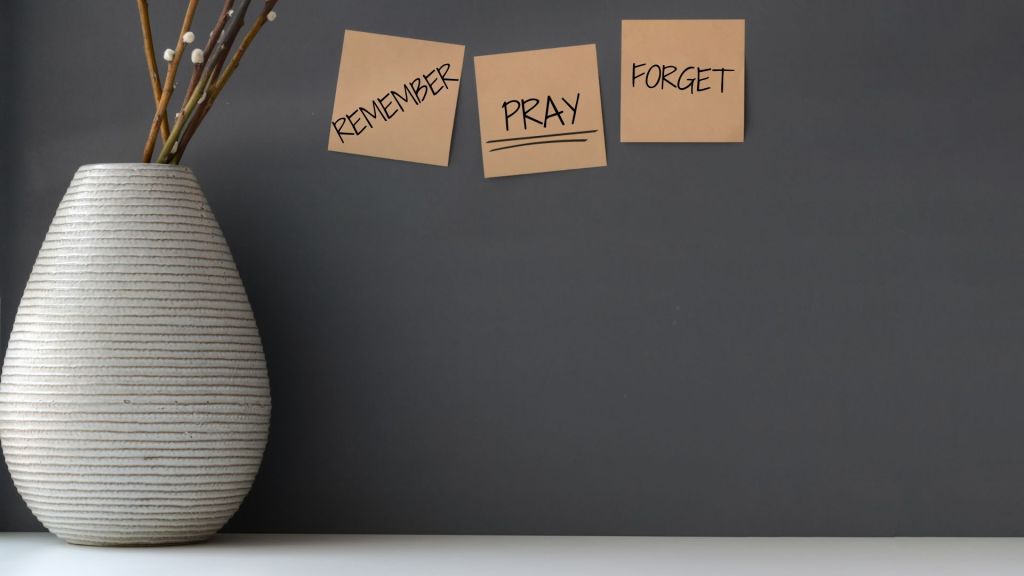
Bear with each other and forgive one another if any of you has a grievance against someone. Forgive as the Lord forgave you.
Colossians 3:13 (NIV)
It took a 40-years-in-the-armpit-of-the-desert sort of situation, a little like my buddy Moses, for me to get a few things straight about myself and my relationship with God. One of those things was God’s view on forgiveness. I often joke that I have a PhD in Learning Stuff the Hard Way, but the truth is, spiritual growth for me has been quite a journey. It took a while to grasp that I have a 100% right standing with God because of Christ, period, and that I can’t add to or take away from that. I confess it’s still a bit mind boggling.
Complete forgiveness is an amazing, mind-blowing thing. A priceless, undeserved gift.
And yet . . . I still struggle with letting go of the hurtful or offensive things that others do. Offensive people are everywhere, aren’t they? (Or is it just me?) We live in a world of broken, rude, imperfect people who take cuts and accuse and backstab and offend. And some of us are gifted at keeping track of offense while conveniently forgetting our own flaws. But we are all guilty. ALL of us. NO one is perfect (nor should we expect anyone to be).
Colossians 3:13 in the NLT says, “Make allowance for each other’s faults, and forgive anyone who offends you. Remember, the Lord forgave you, so you must forgive others.”
So even though hurt happens regularly, the Christian is told repeatedly in scripture to forgive. And it’s a command, not a suggestion, and not open to interpretation. Not only are we commanded to forgive, but we are to forgive as God forgave us. How does God forgive? Completely. Without hesitation, condition, or holding it over us. He not only forgives our sins and offenses, he also forgets them. File deleted, forever.
Jesus knows how warped our perspectives are and has a LOT to say about it, like the parable of the servant who was forgiven an astronomical debt and then beat up a guy who owed him 5 bucks (Matt 18). Or about how we’re quick to point out the speck in our brother’s eye and ignore the log sticking out of ours (Matt 7). I don’t think his use of hyperbole there was a coincidence. I think that was to help point out how phenomenally flawed and ridiculous our hypocrisy is.
Jesus knows us all too well.
So where does that leave us? Doomed to disobedience, bitterness, and conflict, thanks to our human reflexes, unless we make some choices. We have a choice to keep stumbling over the wounds and offenses of others and deal with the fallout, or we can choose to change the way we respond to offense.
This isn’t rocket science, but there are 3 simple things I’m challenging myself to do daily:

1. REMEMBER daily (hourly?) that I’ve been fully forgiven and to likewise fully forgive, a paradigm shift that will likely take some proactive discipline. Maybe add Colossians 3:13 as an hourly alert on your phone. Maybe hang The Lord’s Prayer on your bathroom wall where you’ll see it each morning (and at other necessary moments throughout the day…). Maybe post a sticky note on the dashboard of your Ford Escape if you’re in the habit of verbally assessing the IQ of drivers making less than ideal choices. Ahem.
2. PRAY. Both for the offender (forgivee?) and for God’s help to forgive them. He gladly enables and empowers us to do what we cannot do on our own, especially when it’s a matter of obedience, which forgiveness clearly is. A prayer (or 70×7 prayers) asking the Holy Spirit for the power to forgive someone is a prayer he is happy to answer. I can testify to that.
3. FORGET. I may forget a lot of things, but sadly, I can remember all the times I’ve been hurt. Forgiving others as God has forgiven us means we must choose to both fully forgive AND fully forget. And like forgiveness, forgetting is not easy, but Jesus will be faithful to help.
According to 1 Corinthians 13:5, love keeps no record of wrongs, and I believe that love is the real goal here.
Because when we 1. remember that we ALL need forgiveness, 2. pray for help forgiving, and 3. choose to forget others’ sins, we are letting another imperfect soul off the hook, we’re obeying the Lord, and best of all, we’re promoting the kind of love that John talks about, the kind that shows the world that we truly are Christ’s disciples. We are helping to pave the way for an amazing kind of supernatural unity, by the power and grace of God, that the world doesn’t recognize and the enemy can’t stand. And not only are we acting in obedience, love, and unity, we are also putting ourselves in a position to grow a little bit more every day.
Or so I’ve heard. 😉
Love & Peace,
~Camille








